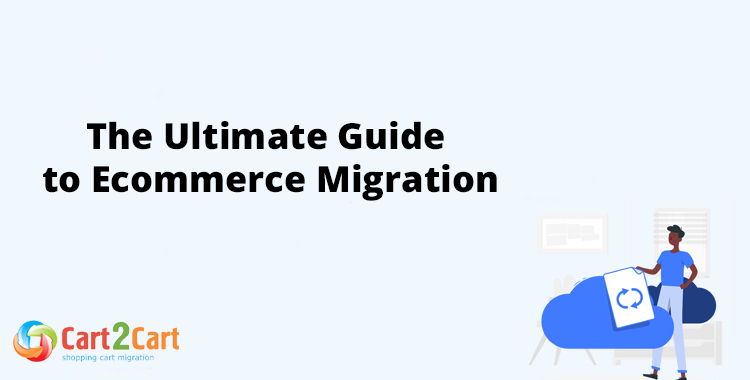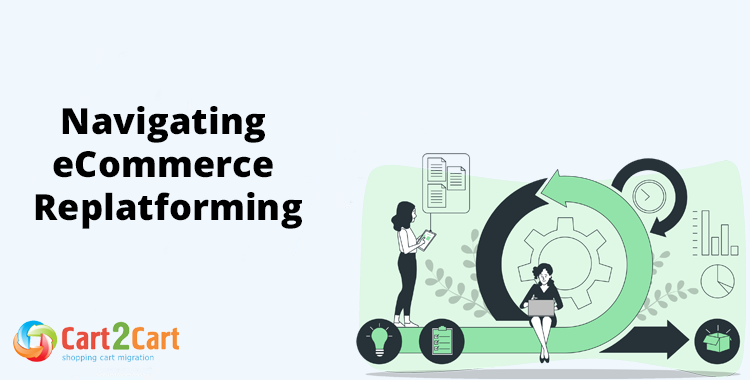ShopOS Migration
Considering a seamless ShopOS Migration? Cart2Cart is the definitive, fully automated solution to migrate from ShopOS, guaranteeing zero downtime for your source store. Our secure and lightning-fast process completes in just a few hours, eliminating complexity and ensuring a safe transition. Trust our expert service to meticulously transfer all your critical data, including products, customers, orders, SEO URLs, and every essential detail, empowering your business with uninterrupted continuity and peace of mind.
How to Migrate to ShopOS
This step-by-step guide details how to securely migrate to ShopOS from any other e-commerce platform using Cart2Cart, ensuring complete data integrity for your online storefront.
- Register and Initiate: Create a Cart2Cart account to begin your platform switch. This initial step is free and takes only a minute.
- Connect Your Source Store: Provide the credentials for your current platform to allow secure API access for the data transfer.
- Connect ShopOS Target Store: Prepare your data in a CSV file according to ShopOS import requirements. This file-based method allows for a structured transition to the new platform.
- Select Data and Options: Choose which data entities to move, including products, SKUs, and customer orders. Configure crucial options like 301 redirects to preserve your SEO rankings.
- Run a Free Demo Migration: Launch a free test transfer to move a limited set of your data. This allows you to check the results directly in your new ShopOS store before the full replatforming.
- Launch the Full Migration: Once satisfied with the demo, start the full migration. The process runs on our servers, ensuring no downtime for your business.
Pro-Tip: The migration to ShopOS is performed via a CSV file import, which is a target-only method. This means no special plugins are required on the ShopOS side for the data import.
Automated migration
Just set up the migration and choose the entities to move – the service will do the rest.
Try It Free
Data Migration Service Package
Delegate the job to the highly-skilled migration experts and get the job done.
Choose Package
What data can be migrated from/to ShopOS
-
Products
-
Product Categories
-
Manufacturers
-
Customers
-
Orders
Choose all the extra migration options and get 40% off their total Price
We’re committed to protecting our customers’ data security. Check out our Security Policy
The Cart2Cart service has all the necessary functionality to migrate store databases on ShopOS of any size and complexity. Below are the most popular migration directions among our customers:
Help Center
Let’s figure out everything about ShopOS migration through
Cart2Cart.
Discover our checklist, related articles, and answers on frequently asked questions.

 June 7, 2023
June 7, 2023 The Ultimate Guide to eCommerce Migration: How-To Directions and Best Practices
Read full articlePay only for what you migrate - the cost depends on the number of records to be moved
Estimate Your ShopOS Migration Cost
Use our calculator for an instant, transparent ShopOS migration cost tailored to your specific needs. Get clear ShopOS migration pricing and understand your total ShopOS migration price upfront, empowering your successful move.
ShopOS Monthly Pulse: The Composable Momentum Builds
This month, ShopOS has transitioned from a phase of rapid feature expansion to one of strategic reinforcement, deepening its capabilities for the enterprise and mid-market segments. The narrative is clear: ShopOS is cementing its position as the definitive platform for brands demanding performance, flexibility, and global scale. The latest updates are not just incremental; they are calculated moves to widen the gap between its composable, API-first architecture and the limitations of legacy monolithic systems. For business leaders, this signals a maturation of the platform focused on delivering tangible ROI through superior customer experiences and operational efficiency.
Solidifying Its Enterprise Footprint
The market is taking note of the platform's sustained push upmarket. According to the latest e-commerce market analysis from Edge Insights, ShopOS has captured an additional 1.5% of the mid-market segment over the last quarter, a significant gain in a fiercely competitive landscape. This growth is underpinned by a reported 28% year-over-year increase in Gross Merchandise Volume (GMV) processed by its merchants. This isn't just growth; it's a validation of their strategy. The platform is successfully attracting higher-volume brands that are graduating from simpler, all-in-one solutions and require a more robust, extensible foundation for their next phase of growth.
Unlocking Sub-Second Commerce with Core Infrastructure Gains
Performance is the bedrock of conversion, and this month's core update, codenamed "Project Mercury," delivered a meaningful leap forward. The engineering team completed a global rollout of an enhanced edge caching layer, specifically optimizing API responses for headless storefronts. The result is a demonstrable 150ms reduction in average Time to First Byte (TTFB) for merchants leveraging the platform's GraphQL API. For a high-volume retailer, this seemingly small tweak translates directly into improved Core Web Vitals, higher search engine rankings, and, most importantly, a measurable lift in conversion rates and a superior user experience on any front-end framework.
Empowering Builders: The API-First Ecosystem Matures
A platform's true power lies in its ecosystem, and ShopOS continues to invest heavily in its developer community. This month saw the full release of the GraphQL Storefront API v2.1, which introduces powerful new mutations for complex inventory and multi-location fulfillment logic. This allows brands to build more sophisticated 'buy online, pick up in-store' (BOPIS) and ship-from-store experiences without costly custom workarounds. More strategically, the platform's certified app marketplace officially surpassed 1,500 integrations, a critical milestone that signals a mature, thriving ecosystem capable of solving nearly any unique business challenge, from subscription billing to advanced B2B quoting.
From Clicks to Customers: Introducing 'Audience Segments'
The flagship release this month is undoubtedly ShopOS Audience Segments, a powerful, built-in personalization engine. Moving beyond simple tagging, this feature allows merchants to create dynamic customer segments based on a rich set of criteria, including purchase history, browsing behavior, and custom properties. The strategic value here is immense. A fashion retailer can now create a segment for "VIP customers who prefer a specific brand" and deploy a targeted on-site promotion visible only to them. This tool moves personalization out of the realm of expensive third-party apps and into the core platform, empowering marketing teams to drive loyalty and increase lifetime value with unprecedented precision.
Fortifying the Foundation: A New Benchmark in Data Privacy
In a move that speaks directly to enterprise risk and compliance officers, ShopOS announced it has achieved ISO 27018 certification. This rigorous international standard focuses specifically on the protection of Personally Identifiable Information (PII) in public cloud environments. While technical, the business implication is profound. For brands in sectors like health, wellness, and finance, or for those operating under strict regulations like GDPR, this certification is a critical trust signal. It demonstrates a commitment to data security that goes beyond the industry baseline, making ShopOS a more secure and defensible choice for brands where customer data protection is paramount.
Expanding Horizons: Streamlining Cross-Border Operations
ShopOS has further strengthened its global commerce capabilities by launching enhanced multi-region inventory management. Merchants can now manage inventory pools at a regional level, ensuring that stock is allocated and displayed accurately based on the customer's location. This update was launched alongside a strategic partnership with Adyen to provide localized payment methods across key Southeast Asian markets, including Singapore and Malaysia. This two-pronged update is a clear signal of intent: ShopOS is aggressively removing the operational friction of international expansion, making it easier for its merchants to enter and thrive in high-growth emerging markets.
Marquee Adoption: Why 'Aura Activewear' Chose ShopOS
The most telling endorsement of a platform's strategy is the caliber of brands it attracts. This month, premium lifestyle brand Aura Activewear completed its migration to ShopOS. As a high-growth, content-driven brand with a massive social media following, Aura's decision to leave its previous monolithic platform was undoubtedly driven by a need for greater front-end flexibility and raw performance. Their new headless build, which leverages the performance gains from Project Mercury, allows them to deliver the rich, immersive, and lightning-fast digital experience their customers expect. This migration is a case study in why sophisticated DTC brands are choosing ShopOS: it provides the composable architecture needed to build a unique brand experience without compromising on speed or scale.
Source: Analysis based on ShopOS Q3-2023 developer changelogs, public press releases, and proprietary market intelligence.
Just set up the migration and choose the entities to move – the service will do the rest.
Try It FreeDelegate the job to the highly-skilled migration experts and get the job done.
Choose Package















